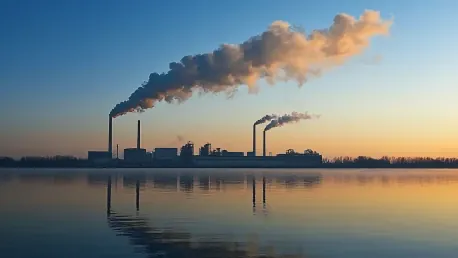Billions of tons of plastic are produced annually, destined to persist for hundreds of years, but what happens to it all? A staggering 91% of this plastic is not recycled, leading to significant waste accumulation and greenhouse gas emissions. The plastic waste crisis has reached overwhelming proportions, necessitating urgent solutions.
An Overwhelming Challenge: Plastic Waste and Climate Change
What happens to the billions of tons of plastic produced every year? The reality is daunting: a mere fraction manages to be recycled, with the rest languishing in landfills or polluting oceans. Over 91% of plastic escapes the recycling system, contributing to environmental degradation and wildlife endangerment.
Plastic waste poses more than an eyesore; it serves as a stark reminder of the broader issue of climate change. The production and disposal of plastics wreak havoc on ecosystems and accelerate the climate crisis. Public concern is growing as the impacts on oceans, wildlife, and global temperatures become ever more apparent.
What Is Carbon Recycling?
Carbon recycling is emerging as a promising solution in the battle against industrial emissions. Reducing emissions in industries such as aviation and chemical manufacturing is complex, given their reliance on fossil fuels. Carbon recycling presents an innovative approach by converting plastic waste into alternative fuels that can be used by these emission-heavy sectors.
Understanding The Science Behind Carbon Recycling
Switching from fossil fuels to renewable energy sources is a significant challenge ingrained in modern economies. Carbon recycling offers a potential path forward, transforming plastic waste into valuable materials and closing the carbon loop. For example, discarded nylon from old T-shirts can be repurposed to create new products through carbon recycling processes.
Effective recycling technologies are pivotal to achieving this transformation. Carbon recycling can shift fossil fuel dependency towards sustainable practices, presenting a practical means of addressing some of the toughest transition challenges.
Current Recycling Practices: Shortcomings and Potential
Mechanical recycling remains a common method, involving heating, melting, and re-molding plastics. However, this process often leads to a reduction in product quality and limits the recyclability of reused plastics to a single cycle. Another dominant strategy, energy recovery, involves burning plastics for energy but also results in significant carbon dioxide emissions.
A shift towards innovative recycling methods could address these limitations. Embracing novel technologies and methodologies is crucial to improve recycling efficiency while mitigating associated environmental impacts.
Innovations and Promising Research
Notable research initiatives are making strides in carbon recycling. For instance, Luca’s lab has pioneered the use of electricity to break down plastics without releasing carbon dioxide. This method allows recycling processes to create materials from waste without further adding to carbon emissions.
Promising case studies underscore potential improvements in recycling. Such innovations are at the forefront of driving a more sustainable approach to managing plastic waste.
Collaborations and Systemic Changes
Collaborative efforts like the Polymers for a Sustainable Earth project exemplify the interdisciplinary approach necessary for effective carbon recycling. Involving various departments and the National Renewable Energy Laboratory, the project aims to refine recycling practices and redesign plastics to be more adaptable for reuse.
This systemic change is fundamental for crafting effective long-term solutions. Rethinking polymer design to emphasize recycling efficiency and material reuse is a pivotal part of the strategy.
Toward a Sustainable Future
Addressing the plastic waste and emissions crisis requires practical steps. Reducing plastic consumption, supporting recycling initiatives, and advocating for technological advancements in carbon recycling are essential actions.
Governments, industries, and individuals each play a critical role in closing the carbon cycle. By implementing sustainable practices and policy changes, a substantial difference can be made towards achieving a more circular economy.
In conclusion, the journey towards resolving the plastic waste and emissions crisis is paved with technological innovations and collaborative efforts. The strides in carbon recycling research demonstrate significant potential to mitigate greenhouse gas emissions and reduce plastic waste. These advancements require continued support and practical implementation, underscoring the promise of a sustainable future through diligent efforts and systemic change.









